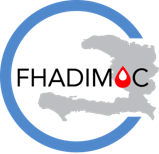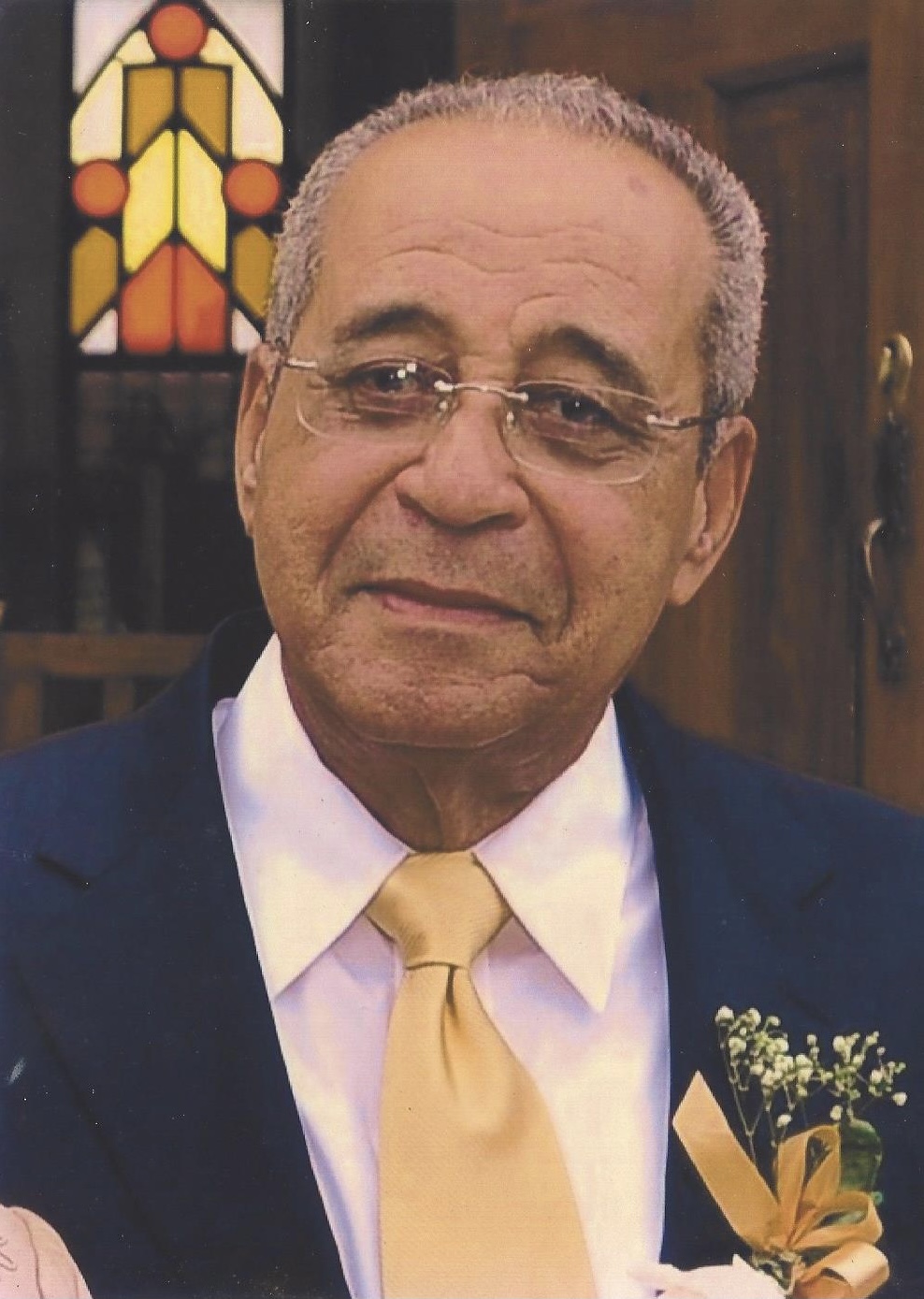
HOMMAGE TO DR RENE CHARLES - LE NOUVELLISTE
Passing of Dr. René Charles, pioneer in the fight against diabetes in Haiti
Dr. René Charles, founder of the Haitian Foundation for Diabetes and Cardiovascular diseases, passed away on January 16, 2022. This announcement deeply shook the medical world.
Tributes are pouring in on WhatsApp groups and other social media for Dr. René Charles, who died on Sunday, January 16, 2022. Friends, patients, family members and colleagues had kind words to share, either their own memories or those passed on from one generation to another.
The former Minister of Public Health and Population, Dr. Josette Bijou, stands out for having shared great moments in her career with the man she still calls "my teacher".
Before him, there were diabetes and diabetics in Haiti, but no one had thought of doing what Dr. René Charles did: "Create a foundation able to take care of diabetic patients in a holistic way, whether they are rich or poor."
After graduating from the Faculty of Medicine of l’Université d’État d’Haïti in 1956, Dr. René Charles completed a residency in laboratory medicine with Paul Boncy and Jean Péreira before moving to New York City to work at Mount Sinai Hospital and Rochester University in order to pursue his academic training. He then completed a specialization in hematology and endocrinology.
Upon his return to Haiti, he was appointed professor at the Faculty of Medicine of the UEH (Université d’État d’Haïti) where he taught metabolic diseases. "It was a decisive moment in his career. He enjoyed an outstanding reputation at the Faculty of Medicine," said his daughter, Dr. Nancy Charles Larco.
For a former student practising medicine in New York, Dr. René Charles had simply revolutionized medical school teaching in Haiti. "Before him, professors used to rely on students' memory, but he instead focused on logic, common sense and a good understanding of clinical cases. His exams were open book," recalls this doctor, who also became a specialist in endocrinology.
Dr. René Charles stands out because he did not want his specialty, which was rare at the time, to be accessible only to the wealthy. This is why, in 1973, he created the Haitian Diabetes Association. Challenged by the heavy demands of its success, it would become the Haitian Foundation for Diabetes and Cardiovascular diseases.
Until his last days, his focus was on those most in need. He also wanted to create a reference centre for the diabetes management, explained Dr. Nancy Larco, director of Fhadimac.
In addition to his great reputation in the field of internal medicine, Dr. René Charles saw the extent of diabetes in Haiti as a health problem. From 1972 to 1986, he taught courses in epidemiology and public health at the University of Miami. "His love for public health made him the first honorary member of the Haitian Public Health Association,” says Dr. Josette Bijou.
During the eight-month period he served as Minister of the Ministry of Public Health and Population, Dr. René Charles initiated what public health specialists call today "the reform of the health system in Haiti".
Dr. Josette Bijou, who was regional director at the time, remembers Dr. René Charles as a purposeful man with no personal ambition who wanted the health system to move forward and progress.
Dr. René Charles, who passed away at the beginning of 2022, had successfully fulfilled his mission.
Former president of the Caribbean Diabetes Association and recipient of the Sir Philip Sherlock Award in Jamaica in 2003 for his outstanding work in Caribbean medicine, Dr. Charles is entering into the realm of immortality because his work lives on through the Haitian Foundation for Diabetes and Cardiovascular diseases. For his daughter Nancy Charles Larco, the legacy of her father, Dr. René Charles, includes not only the building that houses the Foundation, but also and above all the well-trained men and women who can ensure its future.
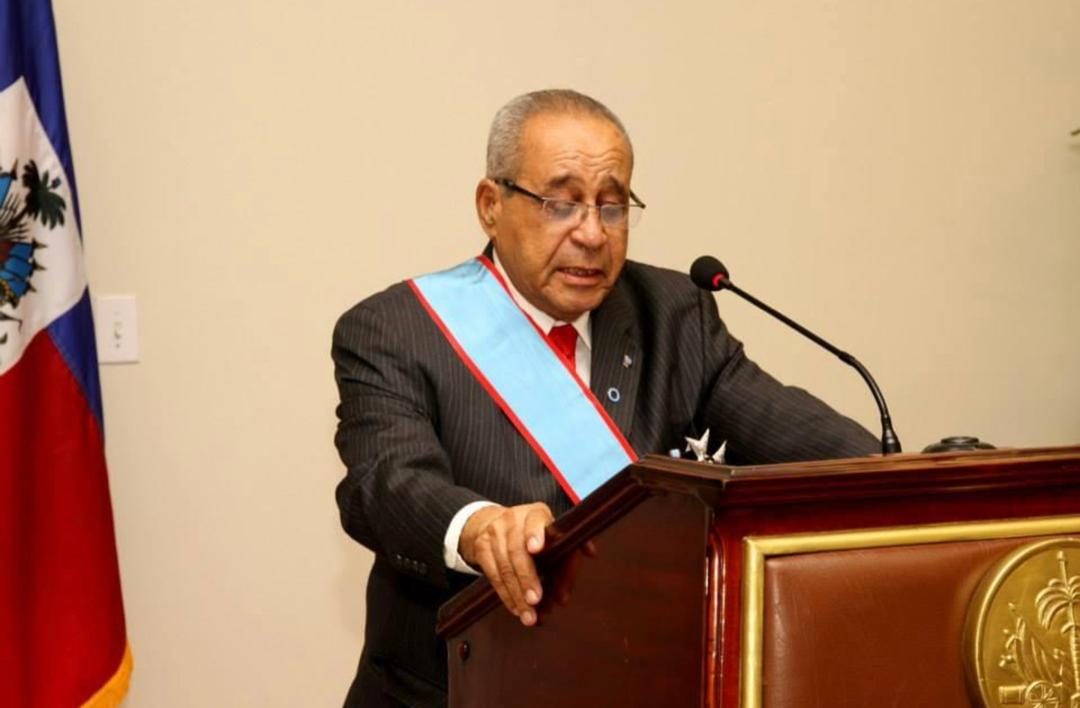
HOMMAGE TO DR ANTOINE RENE CHARLES by dr Carole Cadet Day
Dr. Antoine René Charles
March 3, 1931 — January 16, 2022
Dr. Antoine René CHARLES, born on March 3, 1931, in the city of Jérémie, located in the south of the Republic of Haiti, passed away peacefully in Miami on Sunday, January 16, 2022, surrounded by his loved ones, on the eve of his 91st birthday, embarking on his journey into the Beyond to rise towards his Creator.
The eldest of a family of 10 children, a good husband and father of one daughter and two sons, he was throughout his long life, a caring guide and a loving grandfather to his grandchildren and great-grandchildren.
The joy surrounding his birth never left him. Born in the enchanting town of Jérémie, nicknamed the city of poets, René was particularly gifted and developed a remarkable artistic sense. He recounts he hesitated between music studies to become a tenor and medical studies. The Haitian people, especially the poor, have benefitted greatly from his choice.
After graduating from the Faculty of Medicine of l’Université d’État d’Haïti in 1956, Dr. René Charles completed a residency in laboratory medicine before leaving for the United States, where he completed several specializations in hematology, metabolic diseases and diabetes, and gastroenterology at Mount Sinai Hospital and Rochester University, and he published several articles in these fields.
Having acquired a solid medical knowledge and valuable clinical experience, Dr. René Charles decided to return to Haiti in July 1962, despite tempting offers to stay and work in the United States.
Back in Haiti, he came into contact with two categories of patients in his medical practice:
- The first group, in his private practice, was a small minority who could afford the cost of long-term diabetes and hypertension management.
- The second group, the large majority of the Haitian population, was unable to pay for long-term treatment and were dying prematurely from acute or debilitating chronic complications. For years, Dr. Charles was tormented by the situation of these disadvantaged patients and helping them became his calling. So, he created the Haitian Diabetes Association in 1987, which became the Haitian Foundation for Diabetes and Cardiovascular Diseases, FHADIMAC, in 1993. He constantly repeated that “Medicine is a gift from God. It must be practiced with love, conscience and honesty,” aligned with his mission to “help others live a better life”.
Dr. René Charles taught at the Faculty of Medicine and Pharmacy from 1963 to 1990. He innovated and developed a teaching method addressing the intelligence of his students while arousing their interest and linking theory to practice. He always insisted on the importance of health history and clinical examination of the patient.
In 1980, when he was Minister of Public Health and Population (which lasted 8 months), he advocated for the need to modernize Haitian medicine and make it accessible to all. He emphasized the nobility of the medical profession that makes doctors servants of suffering humanity, especially of the underprivileged.
In 1990, student protests encouraged by some opportunistic professors proved to be incompatible with medical ethics, according to Dr. Charles. Faced with this situation, he lost his enthusiasm. He no longer had the desire to teach students who were unaware of the greatness of the medical profession and who went too far with protests incited by a deceptive and demeaning populism. This disenchantment caused him to resign as a professor at the Faculty and to dedicate himself to his mission: “Help people affected by diabetes to live a better life.”
Numerous distinctions received by Dr. René Charles:
- Honor and Merit from the Department of Public Health of Haiti
- 1997: Leon Audain Award (Highest Medical award in Haiti)
- 1998: Honor and Recognition from Promotion Rosalvo Bobo
- May 14, 2000: Plaque of congratulations and recognition for his humanitarian work for the benefit of diabetics in Haiti
- 2002: Award from Aruba Diabetes Association for a life dedicated to Diabetes
- Mach 2003: Prestigious Sir Philip Sherlock Award from UDOP Comity (Jamaica) for exceptional services to Diabetes in Haiti and the Caribbean
- November 2004: Honor and Merit Award from Lyon’s Club de Delmas, for services to Diabetes in Haiti and prestigious model to younger generation
- 2005: Award for Professional Excellence from Rotary International for its 100th year celebration
- 2005: Honor and Merit from MSPP Minister Dr. Josette Bijou for his dedication to the cause of health in Haiti
- December 2011: Award from the International Diabetes Federation in Dubai for his fight against Diabetes
- November 2012: Humanitarian Award by the Lucienne Deschamps Foundation
- November 13, 2014: Humanism Award by CHAMI (Collège Haïtien de Médecine Interne) for his social and philanthropic commitment, his contribution to the well-being and self-fulfillment of his patients and his community
- November 14, 2014: Ordre National Honor and Merit at Grade of Grand Cross (Silver plate) awarded to Dr. René Charles, President of the Haitian Foundation for Diabetes and Cardiovascular Diseases by President Michel Martelly (Highest Award) for his high contribution in the treatment of Diabetes and his professional support for more than 50 years to the Haitian medical system
- November 2015: DLife Champion from USA for his outstanding work in Diabetes in Haiti.
- 2016: Honor and Merit from the MSPP for his contribution in the fight against Diabetes in Haiti
- 2017: Université Lumière Honor and Merit for the fight against Diabetes and the support brought to the Haitian population
- 2017: Honor and Merit for his contribution to the training of doctors of the Jean Bartoli promotion
- 2019: Honor and Merit by the Lorquet Foundation for a new Haiti for his dynamism and commitment to the improvement of the health system in Haiti within FHADIMAC.
Despite receiving many distinctions, Dr. René Charles has always been humble and attentive to those around him.
Dr. René Charles made a success of his life. Such a statement is surprising. How does one measure success? For René, it was transmitting sound and inspiring values to his children, his students at the Faculty of Medicine and all those who had a close relationship with him. He was guided by an intense curiosity. Music, literature, sports, planting a beautiful garden, public affairs, all of these were areas that fascinated him and kept him away from idleness, the root of all vices.
René’s strength lay above all in his faith. It was strengthened under the short papacy of John XXIII, one of the most admired popes in recent church history. The Second Vatican Council was convened by the Pope and there were many changes in the Roman Catholic Church, bringing them closer to the believers, and this was aligned with René’s ideals.
Very approachable, he had a great sense of humour, which was surprising for such a renowned doctor.
One of René’s strengths was to surround himself with good people. His wife Marie José always supported and advised him in his endeavors. Their lifelong bond lasted 64 years until his death.
According to Dr. Simphar BONTEMPS, his cousin and contemporary, his mission became clear while observing needy diabetics in the 1970s who could not cope with the long-term treatment of diabetes. He understood that a problem this big required an institutional response since State involvement was lacking. Dr. Bontemps, who was then the director of the Saint François de Sales Hospital, gave him the opportunity to set up some clinics there.
The many expenses depleted the savings of his wife Marie José. They had to overcome many obstacles along the way. They still created the Haitian Association of Diabetes and Cardiovascular Diseases, which would become the Haitian Foundation of Diabetes and Cardiovascular Diseases. Several professionals became volunteers or board members. For many years, the team has counted on the expertise of his students Lunel Charlot, Eddy Jean-Baptiste, Philip Cléophat… his daughter, Doctor Nancy Charles LARCO and his son-in-law Doctor Philippe LARCO.
The Foundation is operating clinics, owns a low-cost pharmacy for diabetics, organizes the annual Diabetes Week to create awareness and carries out projects with the Ministry of Public Health and Population and non-governmental organizations. A foot clinic was established to help prevent amputations for diabetics and a hospital is planned in a location that is available.
All the executives are volunteers, which shows that more help is needed. However, FHADIMAC remains a reference. Looking at his work, Dr. Antoine René CHARLES felt that he had fulfilled his mission as described in his last book: “Quelle belle vie!”
The future of such an enterprise belongs to us. In a posthumous letter, Dr. Antoine René CHARLES underlined the improvements achieved by FHADIMAC in the lives of Haitian diabetics, while deploring political leaders’ lack of commitment to the advancement of the country.
René’s commitment to the poor brought to life the words often said by his father: “René, you have received a lot, you must give back a lot.”
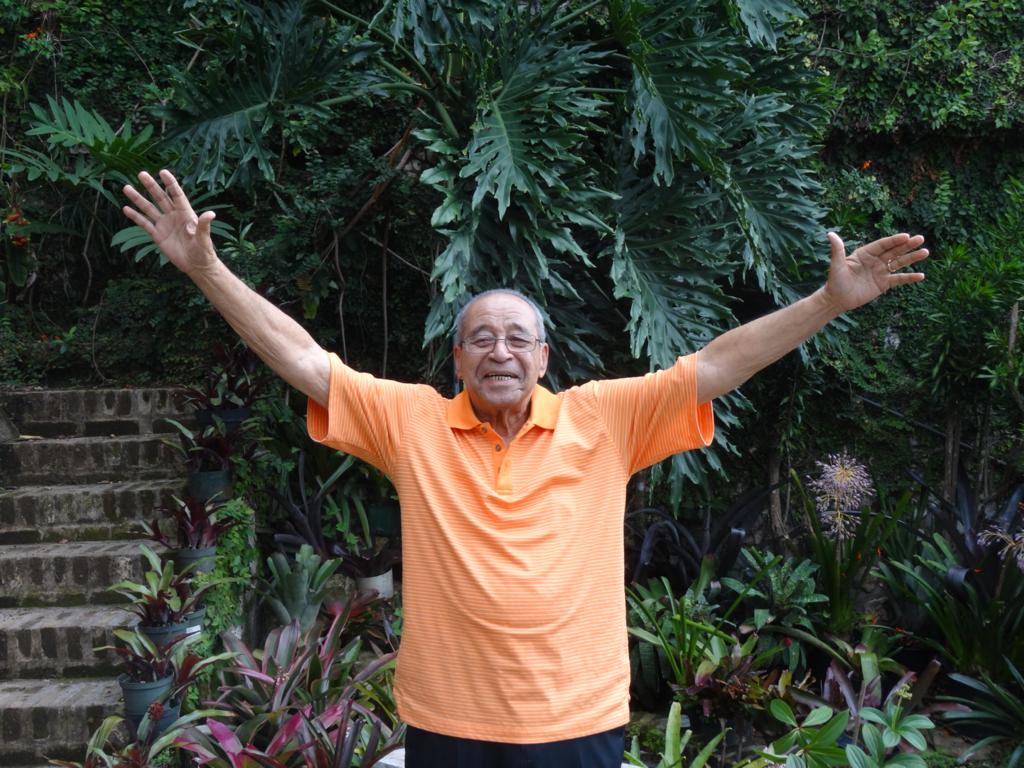
My Last Lesson on Humanity
Dr Rene Charles
I am leaving, at peace with myself, surrounded by the affection of my family, of all those I love and who love me.
I led a good life, in search of good, truth and beauty.
Old age taught me tolerance, wisdom and serenity.
I sowed seeds of joy and peace. I tried to live in harmony with everybody, bearing no hatred, nor envy towards anyone. I ask forgiveness from all those I have unintentionally offended.
I lent a hand where needed to help some live better or more successful lives.
I thank those who made it possible for me to have a stable and happy life, especially my wife.
Sadly, I leave behind a country destroyed by the incompetence of irresponsible governments, the selfishness of short-sighted Haitian politicians, the failure of a large part of the intellectual and business elite and the inability of civil society to act on behalf of common people. For more than two hundred years, they have been exploiting the people without enabling access to education, healthcare or a decent life.
And yet:
Who are we?
Or rather
What are we?
- Wisps of straw scattered by the wind.
- Useless objects despite our vain pretensions.
The most powerful countries armed with sophisticated weapons and atomic bombs have fallen to their knees because of an organism invisible to the naked eye: the coronavirus (COVID-19).
We are reminded that in the face of adversity, there are no differences amongst those who are suffering. We are all equal, whether rich or poor, black or white, “powerful or miserable.” (J. de la Fontaine)
When the pandemic is over, how will we repair the injustice eroding the very fabric of our society and eliminate inequalities, on our native soil, that have created separate and often hostile socio-economic classes?
We missed an opportunity to come together, to unite, after the 2010 earthquake.
And now, how will we see things after the pandemic? What lessons will we learn from this fatal infection that has given rise to so many acts of solidarity in other countries?
Will we, Haitians, turn a blind eye to the looming social catastrophe that can explode at any time under pressure of those who are dissatisfied, misunderstood, exploited and left behind?
The time has come to put the fate of the poor, the deprived and the forgotten before our own interests!
May God protect us!
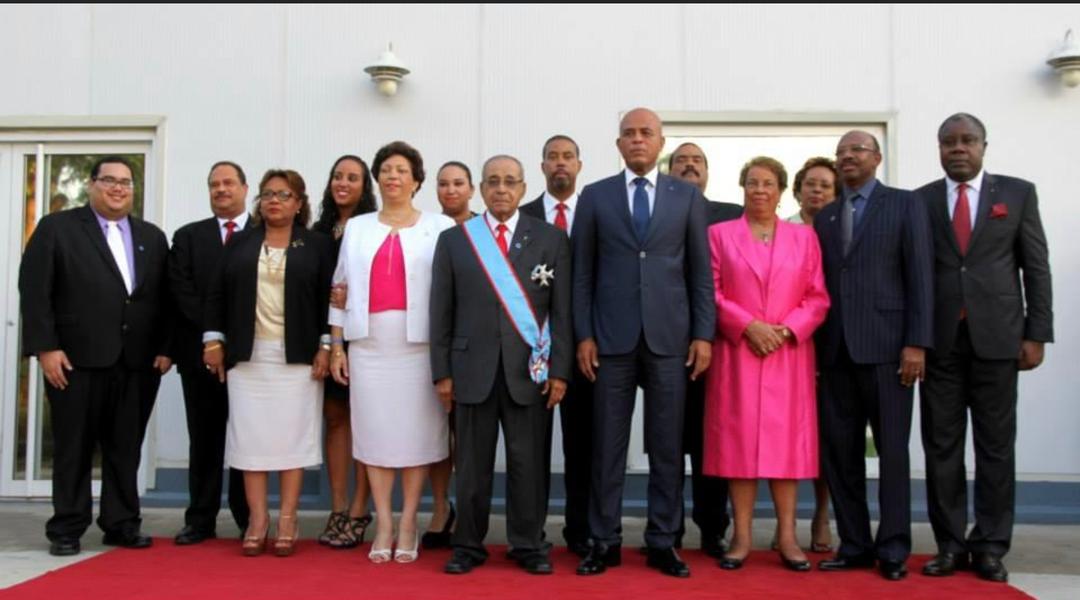
-


